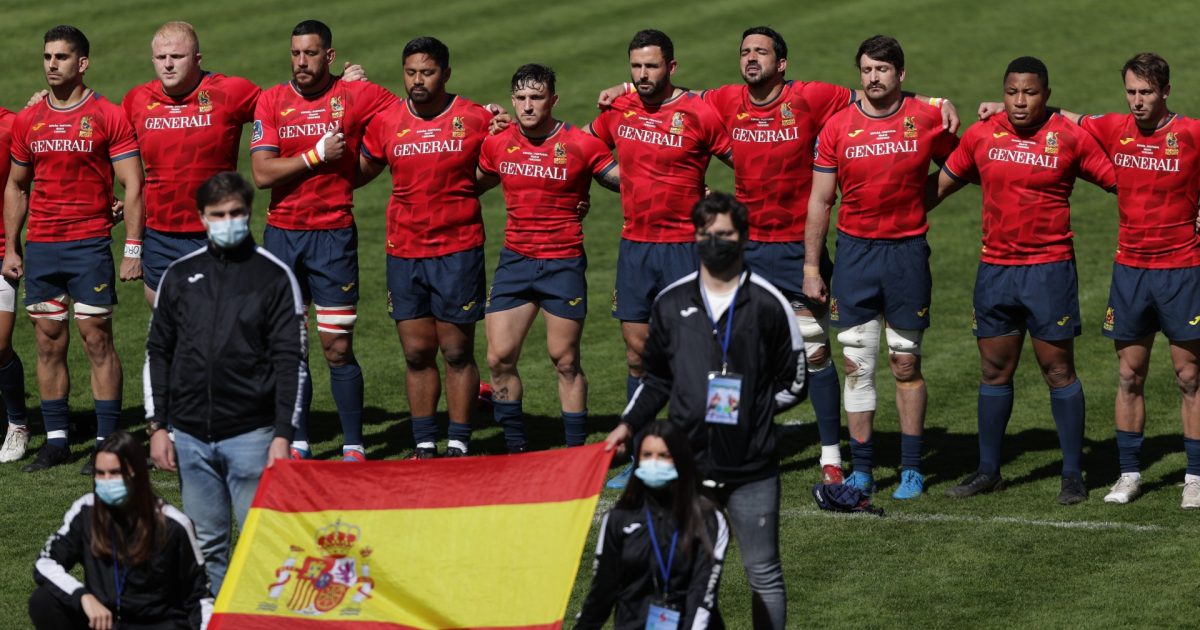New Zealander gets high performance job in 'sleeping giant' Spain

Former Spain international Brad Linklater has been appointed as the new high performance boss at the Spanish Rugby Federation. Instead of planning to take part in what would have been their first Rugby World Cup since 1999, the European minnows will be watching France 2023 from the sidelines following their disqualification for fielding an ineligible player in the qualifiers.
However, with World Rugby in the country this week to implement its new Accelerate investment programme, it emerged on Tuesday that Linklater, a Kiwi who qualified to play for Spain under residency, will now have an important role to play in progressing the sport following last year’s qualification gaffe.
A statement read: “Brad Linklater has been appointed as the new high performance coordinator of the Spanish Rugby Federation (FER). The incorporation of Brad, proposed by the sports management as part of a comprehensive plan to improve the federative structures, seeks to provide more resources to the sports area and accelerate the implementation of the new high performance system.
“Linklater, a 38-year-old New Zealander, arrived in Spain in 2010 to play the Division de Honor with Getxo and made his debut with Los Leones in 2015 against Georgia. Since then, he wore the Spain shirt 34 times, playing his last game with the national team on March 27, 2021, against Portugal in Lisbon.
“His extensive sports curriculum, his training in physical activity and sports sciences, together with his experience at national and international level, as well as his leadership and human quality endorse him for his incorporation into the area directed by Raul Perez.”
Major news coming out of Spain… #HSBC7s | @ferugby https://t.co/xvXaNAdNMz
— RugbyPass (@RugbyPass) March 21, 2023
A separate statement explained: “World Rugby has started in Madrid a series of meetings that will be held throughout the week with the Spanish Rugby Federation to implement in our country Accelerate, a new World Rugby investment programme through which specific alliances are formed with national federations, governments and related brands to accelerate the growth of rugby, with special attention to women’s rugby.
“Accelerate has already been successfully applied in Australia and the United States, with Spain being the third country chosen by the international organisation.”
“We have developed Accelerate to grow rugby around the world on a five-year plan and we are in Spain to promote and support the work that the Spanish federation is already doing,” said Sally Horrox, director of Women’s Rugby at World Rugby and the head of the Accelerate programme after a meeting took place at the offices Atletico Madrid at the Civitas Metropolitano, the stadium that in August will host Spain versus Argentina and will host the final of the World Rugby Seven Series from 2024.
“Today we have talked about Spain being a sleeping giant. You can feel the desire to grow the whole sport and the fan base – which is small compared to other sports. If we have more events and better competition people will respond by going to stadiums and taking kids to play rugby. You can see the great growth potential that Spain has.”
FER president Juan Carlos Martin added: “WE have shown World Rugby the strengths and weaknesses of Spain to try to accelerate the path in strengthening clubs, players and, especially, women’s rugby. In this case, Accelerate tries to find critical points through which such growth can be accelerated.
“It is a methodology already demonstrated in Australia and the United States; Spain is the third country chosen for the potential it has. We are going to raise opportunities for the growth of the sport to go faster and for new lines of help, concrete actions, new ways of working and that it is a task of all the protagonists of national rugby, not only of the Spanish federation.”





































































